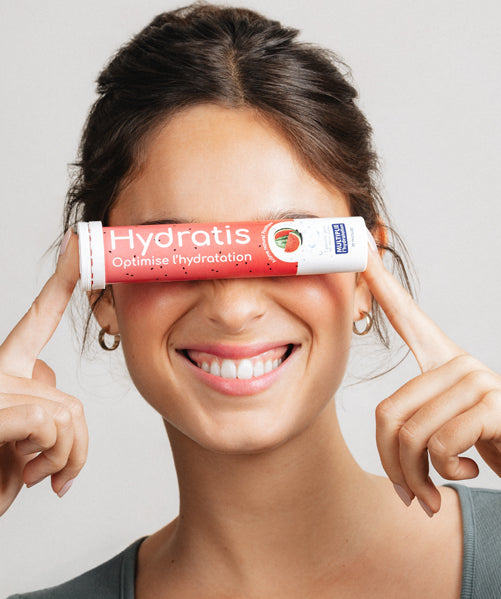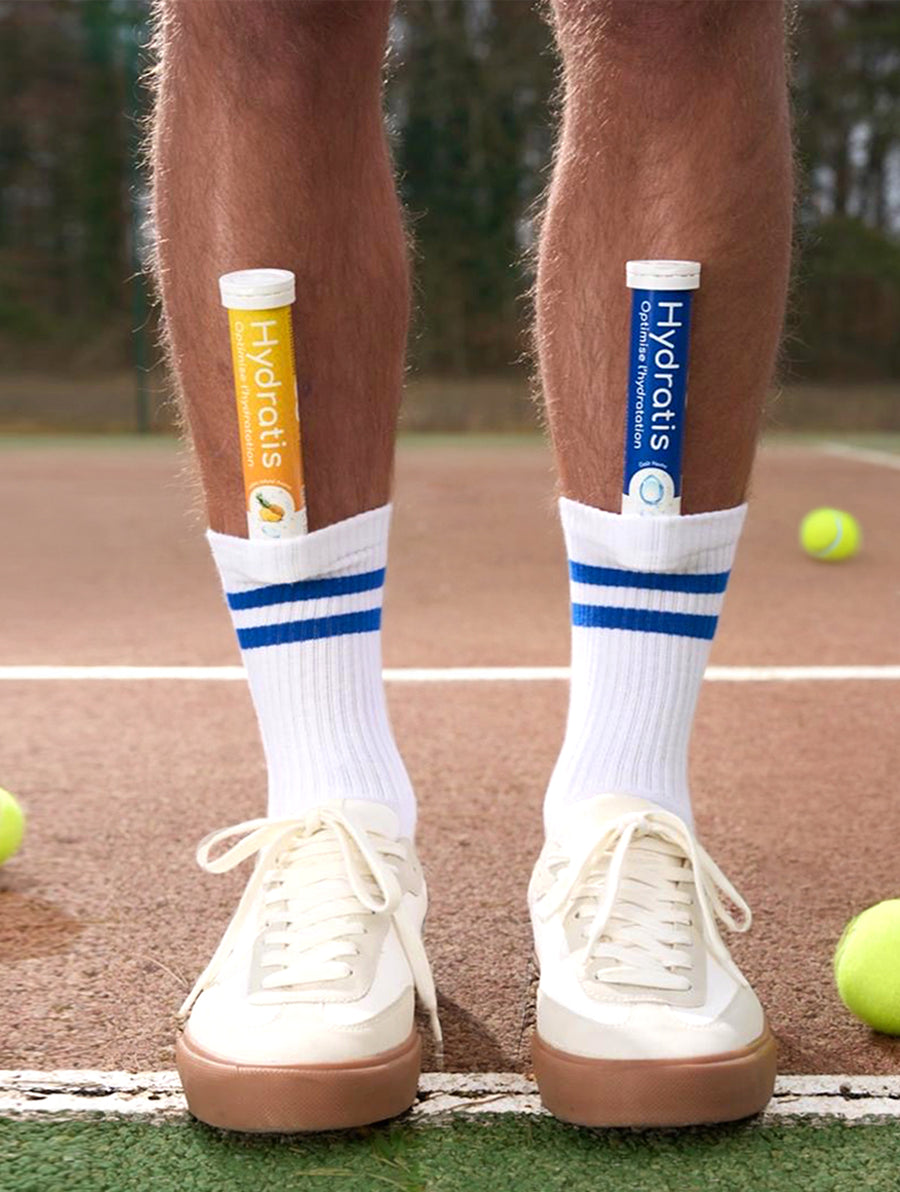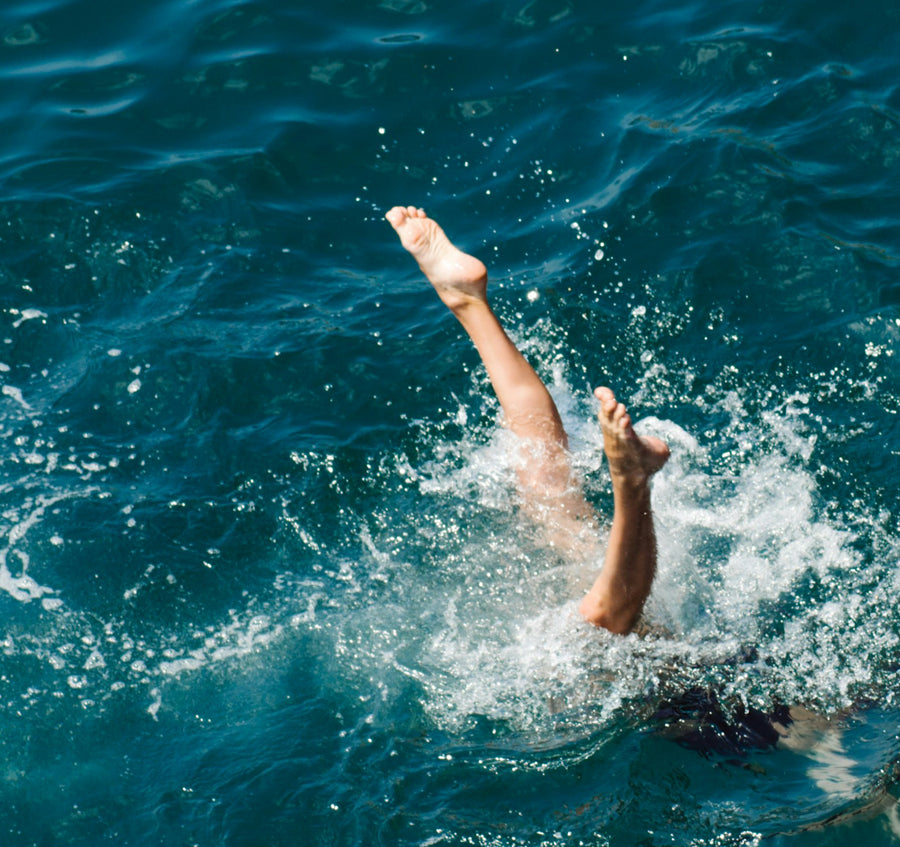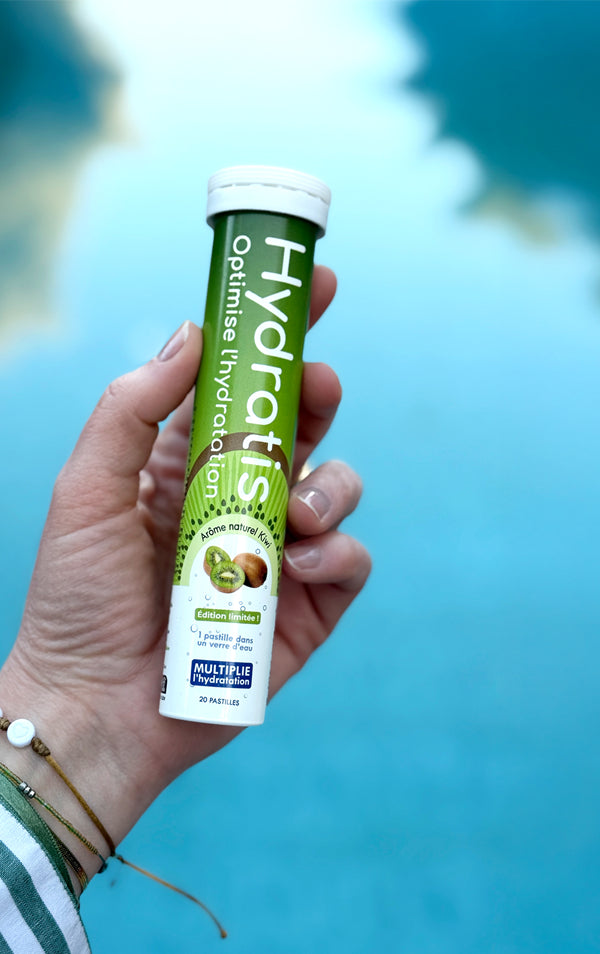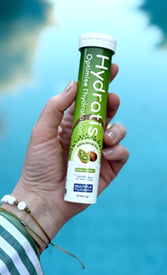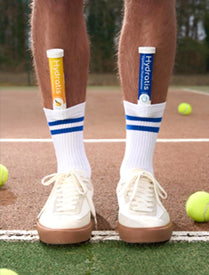I- What are the benefits of good hydration?
Two-thirds of the body is composed of water. This means that for a weight of approximately 70 kilograms, the human body contains about 46 liters of water. Nearly 70% of the water is contained within the cells, 20% in the space surrounding the cells, and just under 10% in the bloodstream. Water is essential for maintaining the body's health.
When the amount of water consumed equals the amount excreted, the body's water reserves are well balanced. If you are healthy and do not sweat excessively, you should drink at least 2 to 3 liters of fluids per day (about 8 glasses of water) to maintain your fluid balance and protect yourself against certain complications, such as the formation of kidney stones.
Furthermore, water improves concentration and memory. Indeed, thanks to water, the nervous system creates connections and improves our mental and cognitive abilities. Our brain can then work more efficiently and stimulate our memory and neurons.
Drinking water helps to flush out toxins and accelerate cell renewal, which boosts blood circulation and healthy exchanges in the body. Poor circulation and poor blood flow are vectors of disease and promote the appearance of cellulite. Water helps to prevent this!
II- What are the signs of dehydration?
Dehydration:
Dehydration can occur when the body's water supply is insufficient.
Dehydration is not a "disease" in the strict sense; it is a physiological state with consequences that can vary in severity. This physiological state results from a significant decrease in fluid within the body. Dehydration can be caused by malnutrition, severe diarrhea, or heat, particularly in summer. This fluid, present in a quantity lower than normal in a state of dehydration, consists essentially of water and mineral salts.
Dehydration can affect everyone, but particular attention should be paid to young children and the elderly .
The causes of dehydration
Diarrhea , the main consequence of dehydration, is caused by:
● a lack of hygiene;
● malnutrition, particularly regarding foods "rich in water";
● contact with and/or hydration with contaminated water.
This state of dehydration can affect everyone, regardless of age, gender, or place of residence. However, the elderly, as well as children and infants, are groups that require more attention. Indeed, regarding the elderly, they sometimes have more difficulty staying regularly hydrated, especially during periods of intense heat. As for children, during their growth period, the consequences of dehydration are more serious than in adults. In this sense, promoting hydration in these groups is essential.
When diarrhea is not treated immediately, it can become dangerous. Indeed, the loss of water and minerals can have significant consequences on the functioning of the body (vital organs, muscles, brain , etc.), especially in growing children or the elderly, whose bodies are weakened.
In order to prevent dehydration from worsening, it is important to maintain adequate hydration, which is about 1.5 liters of water per day.
Symptoms of dehydration:
Dehydration can be recognized through certain specific signs, including:
● less frequent need to urinate;
● the absence of tears;
● Dry mouth, dry tongue, dry lips and skin;
● a "grayish" skin;
● a sinking of the fontanelle (the soft part of the infant's skull);
Diarrhea and vomiting are the most obvious signs.
Other symptoms may also accompany this diarrheal condition: fever, loss of appetite, nausea, vomiting, stomach aches, or even abdominal cramps.
The presence of blood in the stool indicates significant dehydration, and is the most alarming condition.
Tests to perform to diagnose dehydration:
Test 1. Pinch the skin.
Lack of hydration affects skin texture and elasticity. Skin is composed of approximately 30% water. To determine if your skin is sufficiently hydrated, pinch the skin on the back of your hand, between your thumb and index finger. If the skin immediately returns to its original position, this indicates sufficient moisture and elasticity. If it takes half a second or more for the skin to return to its original shape, this may be a sign of dehydration. When the body detects a water shortage, it draws water from the skin to allow other organs to function. This makes the skin feel tight and can cause it to feel cool and clammy.
Test 2. Urine change
Another warning sign is urine. For example, the color alone reveals a lot about your body's hydration status. Dark or honey-colored urine is a sign of possible dehydration. Urine is composed of both water and waste products that the body needs to eliminate. In a well-hydrated body, urine is pale yellow and odorless. Urinating infrequently can also indicate dehydration.
How to remedy this?
If dehydration is mild, simply drinking plain water may suffice. However, if there has been a loss of water and electrolytes, salts (especially sodium and potassium) must also be replaced. A number of commercially available drinks have been developed to replace salts ( electrolytes ) lost during strenuous exercise or illness.
Hydratis offers these life-saving drinks. By consuming these drinks, you can prevent dehydration or treat mild dehydration. The process is very simple: just dissolve the effervescent tablets in a large glass of water and drink. This should be done up to 2 or 3 times a day as needed to optimize hydration.
Drinking plenty of fluids and taking a little extra salt during or after exercise or during illness will also be effective. If dehydration worsens and blood pressure drops low enough to cause shock or near-shock, this is an emergency requiring immediate medical attention. In such a serious case, an intravenous solution containing sodium chloride may be administered.
The underlying cause of dehydration must always be treated. For example, if diarrhea is the cause, medication to treat or stop the diarrhea may also be necessary. Once the cause of dehydration is treated, you will need to be monitored to ensure you are drinking enough fluids to stay hydrated. Your doctor may test your kidney function to ensure your kidneys are functioning properly when you are taking normal amounts of fluids.
If a child shows symptoms of dehydration, a healthcare professional should be contacted immediately.
To prevent dehydration, it is necessary to drink sufficient water or fluid replacement products when conditions favor dehydration (e.g., hot, humid or cold weather, high altitude, strenuous physical exertion). It is also important to avoid alcoholic or caffeinated beverages, which accelerate dehydration by increasing urine output. It is recommended to consume 2 to 3 liters (approximately 8 glasses) of fluids daily.
